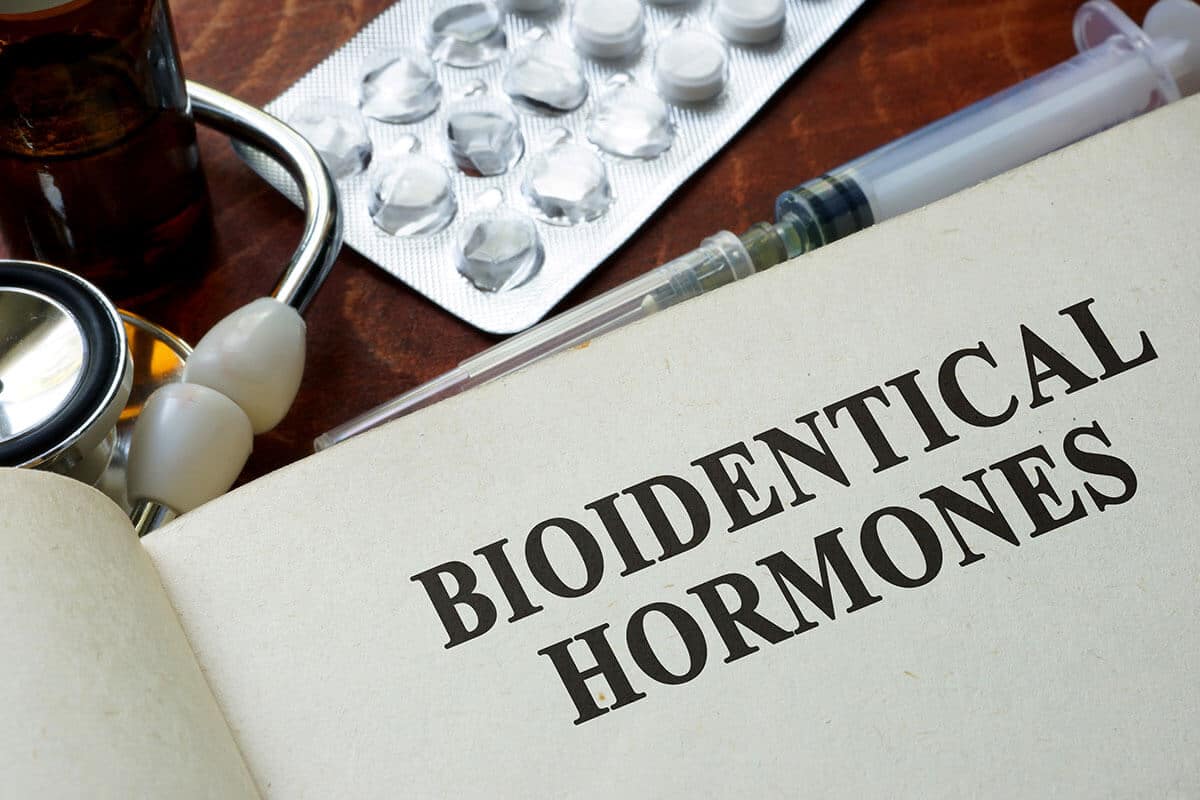Bioidentical vs. Synthetic Hormones: An In-Depth Comparison

Hormone Replacement Therapy (HRT) has been a cornerstone in managing hormonal imbalances and associated conditions for decades. At the heart of HRT are two primary types of hormones used in treatment: bioidentical and synthetic hormones. While they share the common goal of alleviating symptoms caused by hormonal imbalances, their composition, efficacy, and impact on the body vary significantly.
Bioidentical hormones are chemically identical to those the human body produces naturally. Typically derived from plant sources, such as soybeans or yams, they are custom-compounded to match each individual’s unique hormonal needs. This personalization aspect of bioidentical hormones has gained them a growing preference among those seeking more natural treatment options.
On the other hand, synthetic hormones, which have been the mainstay of traditional HRT, are created in laboratories and are not identical to human hormones. These hormones are standardized in their dosages and are designed to mimic the effects of their natural counterparts, albeit not without differences in their molecular structure and subsequent interaction with the body.
Understanding Hormones and Hormone Therapy
Hormonal Function in the Body: A Brief Overview
Hormones, the body’s chemical messengers, orchestrate a wide range of physiological functions, from growth and metabolism to reproductive health and emotional well-being. This delicate hormonal balance is crucial for maintaining overall health.
However, factors like aging, environmental influences, and certain medical conditions can disrupt this equilibrium, leading to a spectrum of health issues. The complexity of hormonal interactions in the body underscores the importance of understanding their role not just in disease states, but also in maintaining general health and homeostasis.
The Evolution of Hormone Therapy
Hormone therapy has evolved significantly since its inception, mirroring advances in medical science and our deepening understanding of endocrinology. Initially focused on alleviating menopausal symptoms, hormone therapy has broadened to encompass a variety of hormonal imbalances, including thyroid disorders, andropause, and other endocrine-related conditions.
This evolution traces back to early interventions using animal-derived hormones, progressing to the development of synthetic hormones designed to replicate human hormones, and more recently, the advent of bioidentical hormones. Each stage in this evolution has been guided by a growing understanding of hormonal pathways, as well as by shifts in medical paradigms and patient preferences.
The Role of Hormone Therapy in Modern Medicine
Today, hormone therapy is an integral component of modern medicine’s approach to patient care, particularly in managing conditions associated with hormonal deficiencies or excesses. Far from being a mere symptomatic treatment, hormone therapy aims to restore and maintain hormonal balance, thereby improving the patient’s quality of life.
This therapeutic approach requires a nuanced understanding of individual hormonal profiles, necessitating personalized treatment plans. The advent of sophisticated diagnostic tools and the development of diverse hormonal formulations have significantly enhanced the efficacy and safety of hormone therapy, making it a vital tool in the armamentarium of modern healthcare.
Advantages of BioIdentical Hormones
- Structural Similarity to Natural Hormones: One of the most significant advantages of bioidentical hormones is their molecular structure, which is identical to the hormones naturally produced by the human body. This similarity facilitates a more natural and efficient integration into the body’s biochemical pathways, potentially reducing the risk of adverse reactions and improving the overall effectiveness of the therapy.
- Customizability for Individual Patient Needs: Unlike the one-size-fits-all approach of synthetic hormones, bioidentical hormones offer the flexibility to be custom-compounded to match each patient’s unique hormonal profile. This personalization is particularly beneficial in addressing specific symptoms and in fine-tuning the dosage and combination of hormones to achieve optimal therapeutic outcomes.
- Perceived Lower Risk of Side Effects: Due to their natural compatibility with the body’s own hormones, bioidentical hormones are often associated with a lower incidence of side effects. This aspect is especially appealing to patients who are concerned about the potential adverse effects associated with synthetic hormones.
- Potential for Better Absorption and Effectiveness: The body’s ability to more readily utilize bioidentical hormones can lead to better symptom relief and a more efficient therapeutic process. This enhanced absorption and effectiveness are crucial in ensuring patient satisfaction and adherence to the treatment plan.
Limitations of Synthetic Hormones
- Potential for More Significant Side Effects: Synthetic hormones, due to their structural differences from natural hormones, have been associated with a higher risk of side effects. These can range from mild discomforts to more severe health implications, which has been a concern for patients and healthcare providers alike.
- One-Size-Fits-All Approach: Synthetic hormones are typically standardized in their formulations, which can limit the ability to tailor treatment to individual patient needs. This lack of customization can result in less effective treatment outcomes for some patients.
- Historical Concerns: The use of synthetic hormones has, in the past, been linked to certain health risks, such as increased chances of blood clots, stroke, and certain types of cancer. These historical concerns have led to a degree of caution and skepticism among both patients and the medical community regarding the use of synthetic hormone therapies.
- Synthetic Nature: For patients seeking natural or more holistic treatment options, the synthetic nature of these hormones can be a significant drawback. The preference for treatments that align with a natural lifestyle has been a driving force behind the growing popularity of bioidentical hormone therapy.
Embracing a Personalized Approach to Hormone Therapy
As we conclude our exploration of bioidentical versus synthetic hormones, it becomes evident that the choice of hormone therapy is deeply personal and should be made with careful consideration of individual health needs and lifestyle preferences. In this context, Dr. Adonis’s approach to bioidentical hormone replacement therapy stands out as a beacon of personalized care and expert guidance in the field of hormone therapy.

